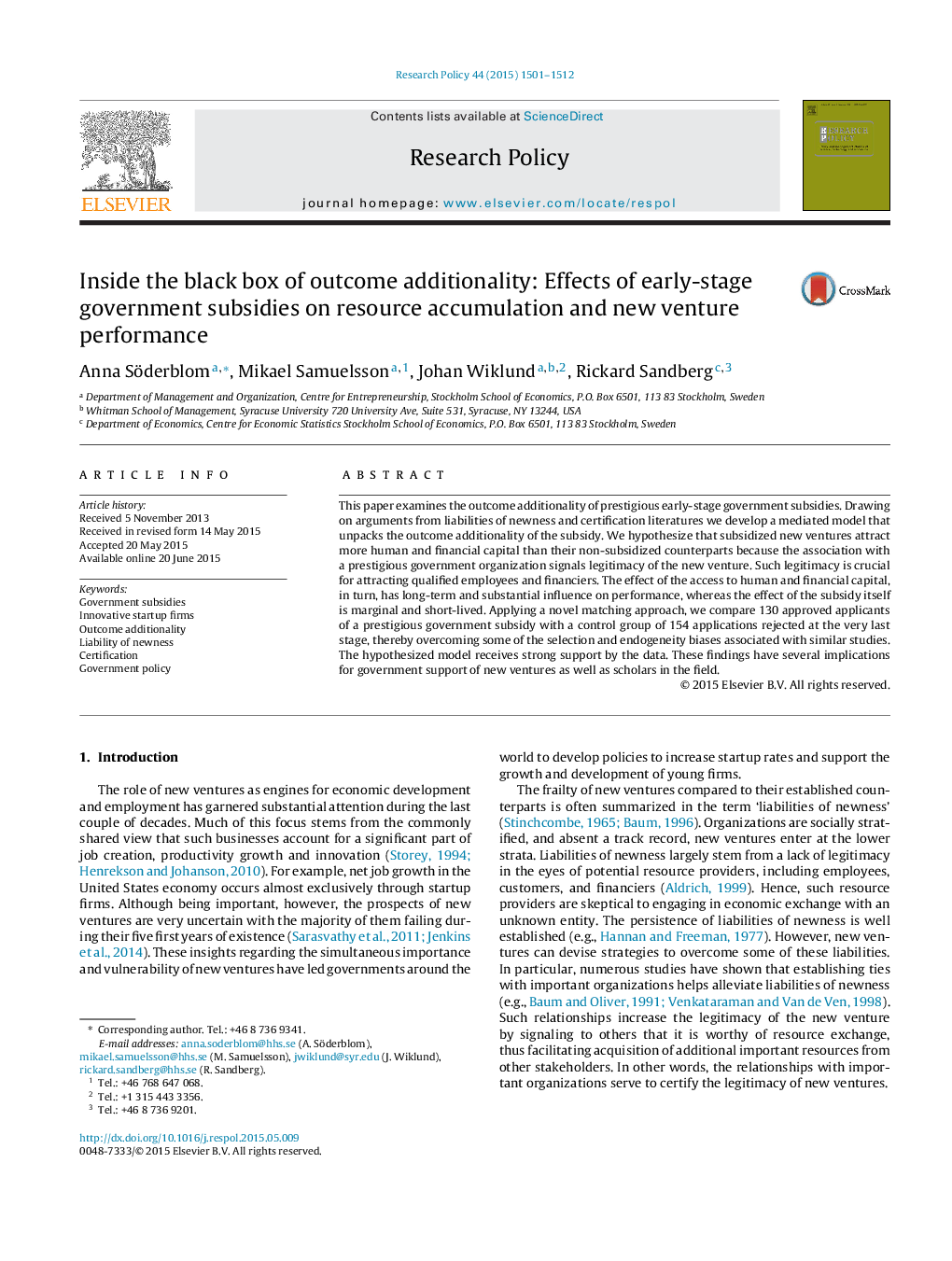| Article ID | Journal | Published Year | Pages | File Type |
|---|---|---|---|---|
| 10482943 | Research Policy | 2015 | 12 Pages |
Abstract
This paper examines the outcome additionality of prestigious early-stage government subsidies. Drawing on arguments from liabilities of newness and certification literatures we develop a mediated model that unpacks the outcome additionality of the subsidy. We hypothesize that subsidized new ventures attract more human and financial capital than their non-subsidized counterparts because the association with a prestigious government organization signals legitimacy of the new venture. Such legitimacy is crucial for attracting qualified employees and financiers. The effect of the access to human and financial capital, in turn, has long-term and substantial influence on performance, whereas the effect of the subsidy itself is marginal and short-lived. Applying a novel matching approach, we compare 130 approved applicants of a prestigious government subsidy with a control group of 154 applications rejected at the very last stage, thereby overcoming some of the selection and endogeneity biases associated with similar studies. The hypothesized model receives strong support by the data. These findings have several implications for government support of new ventures as well as scholars in the field.
Related Topics
Social Sciences and Humanities
Business, Management and Accounting
Business and International Management
Authors
Anna Söderblom, Mikael Samuelsson, Johan Wiklund, Rickard Sandberg,
